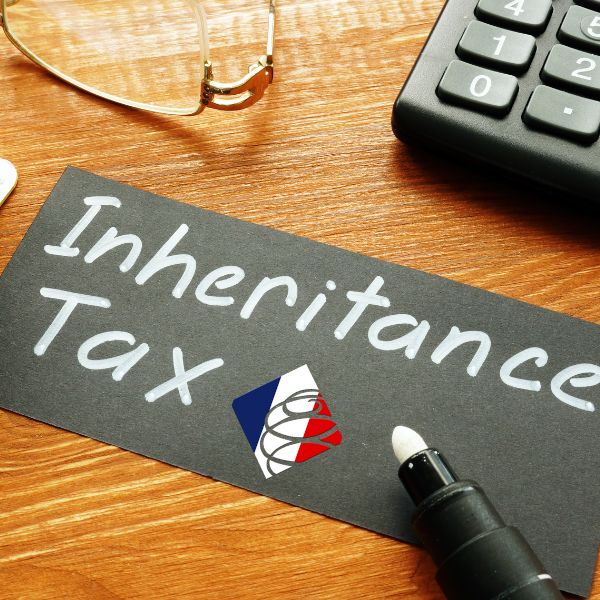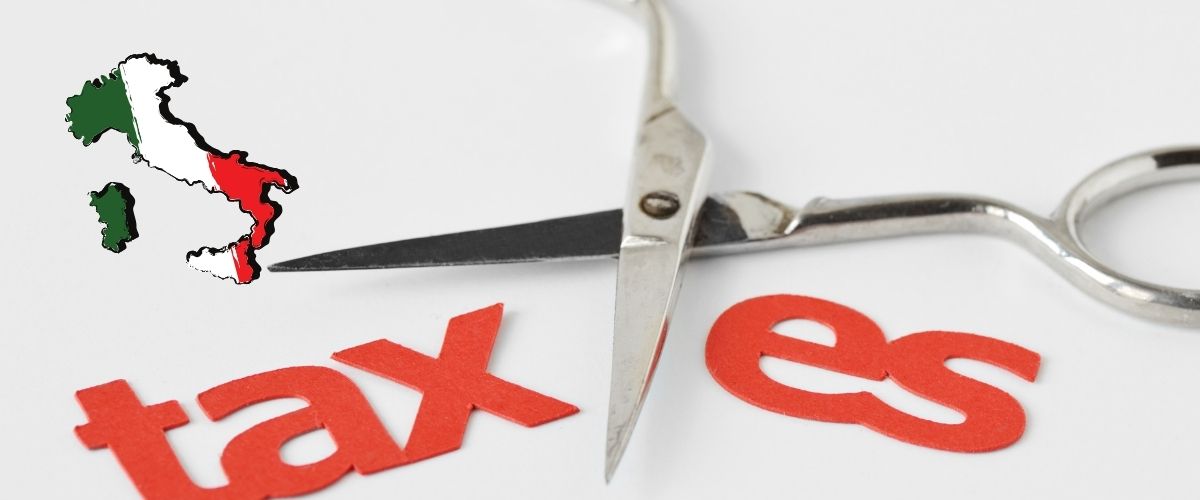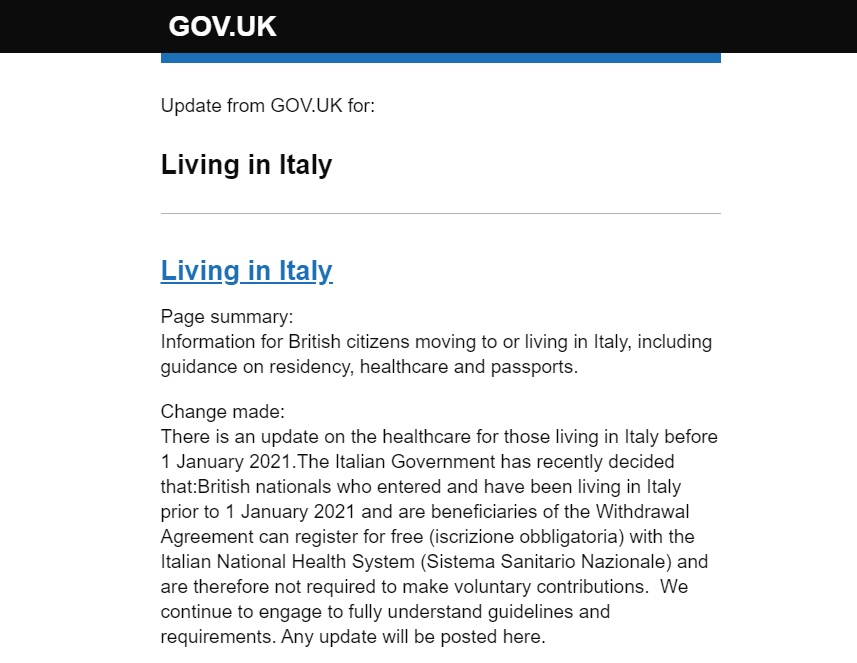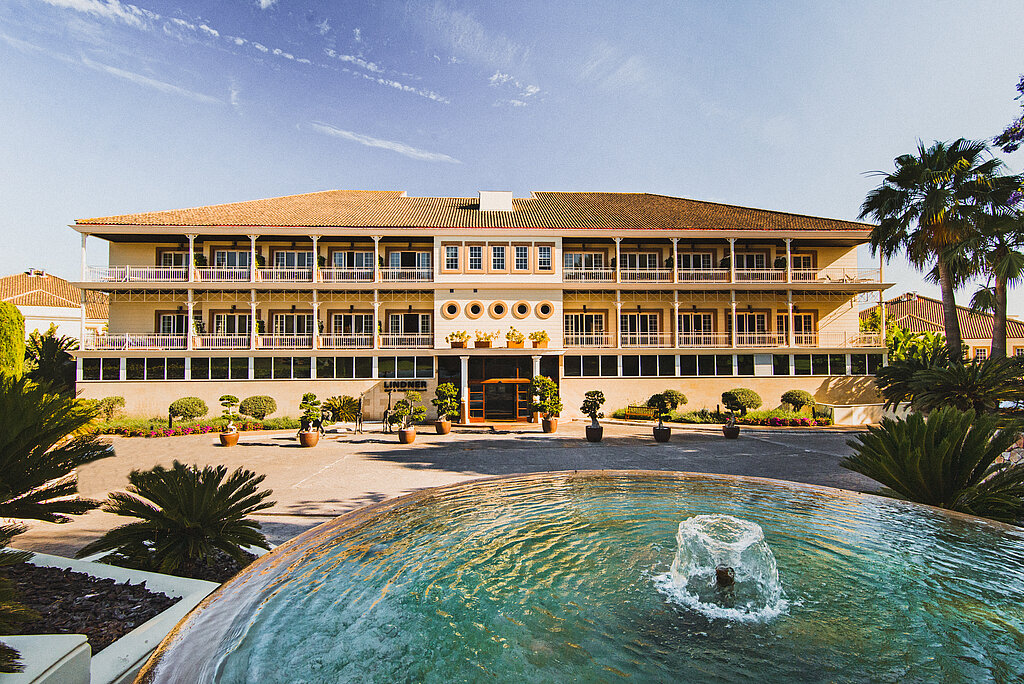The information within this article is for information purposes and is not to be construed as investment advice or recommendation. Please consult with your investment advisor before making any type of investment.
The investment industry has always been highly competitive. Financial advisers globally are continually seeking solutions which are both attractive and able to fully meet their clients’ expectations – not always an easy task.
When selecting investment solutions for clients, it is essential to propose a strategy capable of delivering meaningful returns.
Controlling cost is also important.
When looking to invest with the help of an adviser, or on your own, you may be faced with different layers of fees, and it is critical that you understand each specific charge and the all-inclusive cost. You will for example need to consider adviser servicing fees, platform fees and fund fees. You should be fully aware of all costs before investing. Excessive expense will dilute investment performance, so care is needed to optimise prospects for growth, immediately and longer term.
At Spectrum we discuss fees with prospective clients in the first meeting as we feel this is the best way to start off a relationship. Transparency is key and this helps clients feel more comfortable and well-informed. The fees for our service are highly competitive as we have access to the most cost effective funds and products, with no ties to any particular product provider or fund manager. By ensuring the fees are at the lowest level possible we will be helping clients as they will not be unnecessarily penalised, resulting in better returns.
If you are unsure of whether you are currently invested in products paying high fees or are comparing options and do not know what to do, feel free to reach out to us. We would be glad to explain everything in simple and transparent terms. We do not charge for our initial meeting, and you are not obliged to become a client.
The Spectrum IFA Group Limited is licensed to provide investment services, under the Investment Services Act, by the Malta Financial Services Authority.
A big thank you to all our partners and to those that attended the recent open forum in the Hotel Linder Gold, Bendinat, Mallorca.
The Spectrum Group – Susan Worthington, Jonathan Goodman and Patricia Nadal
Prudential International – Edny van den Broek
Currencies Direct – Aldine Tomlinson, Alfonso Rey & Charlotte Park
Our open forum was the perfect format, that produced plenty of attendee interaction which lots of interesting and thought provoking questions from the audience.
We look forward to our next open forum during the coming months focusing on the financial life of an expat living in Spain.
If you would like to be notified about our next event, please contact me at susan.worthington@spectrum-ifa.com
The information within this article is for information purposes and is not to be construed as investment advice or recommendation. Please consult with your investment advisor before making any type of investment.
At Spectrum we always keep up with the constantly evolving regulatory dynamic which has become a dominant feature of the financial services industry over recent years (decades in fact). This is of vital importance to give our clients peace of mind and to allow us to continue delivering comprehensive and fully compliant investment solutions in Malta and across Europe.
The latest measure taken to bolster our range of services was obtaining a MiFID investment license from the Malta Financial Services Authority. This was a lengthy but worthwhile exercise to ensure that our clients, throughout the EU, continue to benefit from our extensive investment experience, from initial advice recommendations through to ongoing monitoring and support.
The use of this license has not only been limited to the countries where Spectrum is physically present (Spain, France, Italy, Luxembourg, Switzerland, Portugal and Malta) but also to other European jurisdictions, meaning Spectrum is now able to reach and service a much wider audience than before.
From lump sum investments to regular savings, pensions (QROPS and SIPPs), portfolio reviews and investment management guidance, we can engage with clients and identify the most appropriate solutions for their circumstances. In fact, many expats across the EU with QROPS pensions have been left without an adviser due to recent regulatory changes requiring that a MiFID-licensed adviser is appointed. Helping people manage their QROPS is a key part of our business, so we wanted to ensure that we could continue to assist these clients, both existing clients and those who be looking for an adviser. Therefore, being MiFID compliant is not only good news for us but will also give our clientele peace of mind that we will be here for them for the long haul.
If you would like to discuss your own situation and explore options for protecting your long-term financial security, feel free to reach out to us. All initial meetings are free of charge and do not hold any obligation to proceed.
The Spectrum IFA Group Limited is licensed to provide investment services, under the Investment Services Act, by the Malta Financial Services Authority.
Living in Portugal as an expat?
Looking for some direction in your financial and tax planning?
Join us for an educational session as we navigate the complexities of living in Portugal.
Our speakers, including chartered financial Planners, UK & Irish tax advisers and fund managers will be discussing the 2024 tax landscape, retirement planning options, investment solutions and tax strategies for expatriates living in Portugal.
Lisbon area: 24th April 10am to 1pm
Palacio Hotel, Estoril

Algarve: 25th April 10am to 1pm
Magnolia Hotel, Quinta do Lago

Sign up for the workshops below
It means your savings need to be organised before it happens
On 16th October 1987, the stock market in the UK fell 14%. By mid-November it was down 36%. It is for this reason you should keep reading.
The share price falls were across the board and good companies fell with the less successful. It was an arbitrary general fall in the FTSE 100 index. It seemed like a very risky time to be investing.
One of these falling shares was M & S. Yet to me it was ridiculous that M & S had been devalued by 36% when the business was in good shape and with prospects for ongoing growth.
I saw an opportunity to invest in the FTSE 100 index as I felt sure the better companies would be re-valued to reflect their sales and prospects. I knew that this was an opportunity to invest in my future, (not to try to make a quick buck).
Some of my clients also put part of their savings in the FTSE 100 index. Many did not. By August 1989 the index had recovered all of its lost ground. By 17th November 1997, it had gone up by 100% and is now 378% higher than it was in October 1987.
“Investing is the intersection of economics and psychology”
Seth Klarman – portfolio manager and billionaire
This is what I learned from those people who did not invest and which I now use to help people look after their savings. I now understand why those other people did not invest. The reason they didn’t is that I had not discussed, in detail, on a one to one basis, the following –
- Their Attitude to Risk
- The timeframe of their investments
- Their capacity for loss
I arguably let those people down as their savings did less well than the people who did invest.
Having learned a lesson from the experience my clients now benefit from this insight.
It is important not to take too much risk, which I understand. But it is also important to take at least some risk, if your circumstances allow it.
It is important to avoid taking no risks. Indeed, I often hear people say “I want to be Cautious” or “It needs to be safe” and they have left money in the bank earning very little and certainly not keeping up with inflation.
If you think putting money in the bank is low risk, you could be right.
However, taking no risk/low risk can be the biggest risk of all and in the worst case an absolute certainty that your money will not keep up with inflation in the long term and you might not enjoy the retirement you had planned.
The risk of not keeping up with inflation, with not building up your savings, is you end up with a pot too small to provide a sustainable income in retirement. But with the right advice and the correct level of risk for you and your circumstances your sustainable income in retirement is much more likely.

Here are the things I consider when helping you judge the balance of risk versus the growth of your savings. A simple online questionnaire allows you to answer questionnaires to give you a suggested risk profile.
However, we do not leave it entirely to a computer to decide your future. I then discuss the suggested profile, answer your questions, double-check the suggested profile with you, and make any recommendations for improvement based on my 36 years of experience. A good blend of AI (artificial intelligence) and EI (experience intelligence).
What does this mean in practice and why trust me? Here is the outcome that clients get from the correct risk profile:
- Bank accounts – needed to manage day-by-day spending and, separately, for an emergency fund for those unexpected bills
- Always manage the tax aspect of your savings
- Balancing flexibility with longer-term savings
- Separate savings pot for different purposes. Why? If you wish to assist children with buying their house(s) and also want to manage your savings to provide an income in retirement, these aims are different and can therefore benefit from different risk approaches. Helping the children is a one-off event (per child) and is likely to come before your need for retirement income. The need for income in retirement can span 30 or 40 years, from when you stop work to when you pass away
- In each saving pot, we make sure you have a globally diversified portfolio set of assets
- Sometimes premium bonds are used for an emergency fund
- Update your risk profile annually because your circumstances and requirements may change. If so, this may suggest an update to your savings pots which can keep you on track
Here’s why you should trust yourself. Inflation will go up and down but the world’s demographic is changing. Fewer workers mean higher wages and lower state pensions. These things point to higher inflation in the future. Getting the risk balance right on your savings is not a “nice to do”, it is essential. You need to trust that, with the right support, you can improve the likelihood of healthy savings.

Do any of the following apply to your situation ?
-
- Have too much money in bank accounts
- Have recently received an inheritance
- Are selling a business or have share options about to vest
- Have losses on your current portfolio
- Do not review your risk profile annually
If yes, arrange a call with me using my online system to book a time that is convenient for you.
It is an opportunity to get a better outcome from your savings, provide for your family, and help give yourself a sustainable income in retirement. Undoubtedly, you will be more relaxed too knowing that you have the right risk profile for your savings and that it is updated annually.
Recently announced changes to the non-domicile system in the UK could be extremely beneficial for Brits living in France.
The Chancellor of the Exchequer, Jeremy Hunt, said in his Budget speech in March that the government intends to reform the existing Inheritance Tax scheme which is based on domicile rather than residency. In legal terms, your domicile is considered to be the country to which you have the strongest ties and that is often simply due to the fact that you were born there.
Relinquishing your UK domicile is very difficult, even if you have lived outside of the country for many years. Domicile tends to be permanent, unlike residency for tax purposes which changes according to your home, your centre of interests and where you spend most of time throughout the year. The Teflon-like nature of domicile means that the UK can still apply its 40% rate of Inheritance Tax to your estate when you die and, at the same time, all your worldwide assets can fall into the scope of French inheritance tax if you live full-time in France.
However, from April 2025 this situation should change so that British expats in France will no longer be taxed in both countries if they have lived abroad for more than 10 years and they have no assets in the UK. The detail is not yet set in stone, but this is our current understanding of how the new rules will work. The changes might encourage some people to consider moving assets out of the UK in order to avoid any liability there, and the government knows this, so we’ll have to see the finalised details before we can judge how beneficial the changes really are. The prospect of a new party in government following this year’s general election also adds a further element of uncertainty about what the rules will eventually look like.

France also applies Inheritance Tax at rates that can be quite punishing in some circumstances. Beneficiaries can inherit a defined amount of money tax free, depending on their relationship to the deceased, but these allowances can be swallowed up quite quickly, especially where a property is included in the estate. Fortunately, France does provide residents with some very attractive ways to reduce any such tax bill and with the right advice an ordinary family can shelter hundreds of thousands of Euros from Inheritance Tax.
If you would like to discuss your family’s estate planning, or any other financial issues that are important to you, please get in touch to arrange a no-obligation meeting or conversation.
I hope you had a good Easter and didn’t eat too much. I took a break with the family to go and visit some friends in a Hotel on Lago di Garda during the Easter period. We had a great time even though it rained every day that we were there. That being said I got to see a few nice towns and learn a few new things.
We stayed just outside Bardolino, but also visited briefly Lasize. Lasize, I discovered, was the first comune in Italy. Apparently the King of Lasize in 983 a.c decided to concede the management of the town to the local civil authority, an interesting fact, I thought. We also visited Sirmione, which I know of because of the vials of sulphuric water which we used to put in a nebulizer for my son when he was a baby to clear his airways during the period of the winter cold.
Lastly, we visited a place called the Vittoriale degli Italiani, just outside the town of Salò. (https://www.vittoriale.it/). Salò was the last fascist town in the whole of Italy and the Vittoriale appears to be a tribute to that fact. It was, also, the home of the poet and soldier Gabriele D’Annunzio and a tribute to his heroism during World War I.
I can say that I am not a big fan of fascism, but it was very interesting to visit and certainly an unexpected and eye opening trip down Italy’s recent past. All of this whilst I started the book ‘The General and his Labyrinth’ by Gabriel Garcia Marquez, about Simòn Bolivar and reflections on the end of his life after the liberation of South America from the Spanish.(I think I may need another holiday after all these cultural learnings!)
Anyway, talking of fascism, it leads me nicely onto the subject of today’s E.zine: Tax and tax deductions!
I am not sure if tax authorities can be considered as fascist but certainly they fit the description in many ways:
‘An ideology and movement, centralized autocracy, militarism, forcible suppression of opposition, belief in a natural social hierarchy’
Joking aside, they do tend to operate with an iron fist and as I have mentioned on many occasions it is imperative that incomes and assets etc are declared properly and within the right time. That being said, in Italy we do get the possibility to utilise the system of detracting and deductions from income which can sometimes help to reduce our overall tax burden each year.
In this E-zine I will summarise the main ones (please be mindful of the fact that there are specific details related to each category and so I would recommend you check the link to the CAF at the bottom of the email if you are interested in any specific area).
Also please note that if you are on a forfettario tax regime in Italy, ie. 100K flat tax, 7% pensionato or partita IVA forfettario etc, then it will NOT be possible to deduct any of these expenses from your income!

But without further ado, here is the list of deductions which you might be interested in:
Medical expenses of any type: (generic, specialists, surgical, pharmacy, etc) can deduct at 19% of the total annual cost which exceeds the excess/deductible of €129,11. You need to add all your expenses together and deduct the €129,11, 19% of the final amount can be used against tax; if the cumulative amounts do not exceed the €129,11 then no deduction is allowed.
In the expenses calculation you may also include those which have been reimbursed by insurances (personal or corporate).
If your annual expenses exceed €15493,71 it is possible to spread the deduction over 4 years in equal parts.
(The deduction system, without limit of the amount over €129,11 would apply for anyone with special assistance needs e.g. car accident victim).
(Expenses of family members who are ‘a carico’ also qualify).
To use the deductions system, you must be in possession of the relevant documentation that certifies the expenditure i.e. invoice, receipt, quietanza etc. Your receipt should always show the nature of the medicine / treatment and include your codice fiscale.
***When you buy something at the farmacia with your tessera sanitaria, and it is a qualified medicine, then it is automatically registered with the Agenzia delle Entrate. This does not mean that you no longer need the ‘scontrini’. Your commercialista is required to ask for the evidence of purchase to match up with the payments received by the AdE***

Mortgage Interest relief:
For a mortgage on a ‘prima casa’, 19% of the annual mortgage interest and relevant charges, up to a maximum of €4000, can be used as a deduction. Prima casa is defined as the house where you or your family permanently reside. The individual using the detraction needs to be both the ‘intestatario del mutuo’ and owner of the property.
19% on the costs of the real estate agent when buying a prima casa (or rights linked to real estate such as ‘usofrutto’): for an expense of no more than €1000. i.e. max detraction €190, the expense must have been paid by the person requesting the detraction and confirmed as such in the contract of purchase.
Insurance premiums:
19% on the total costs of insurance policies ( Italian and overseas), as detailed below:
- Maximum total annual premium of €530 for life and accident, and non self-sufficiency type policies
- For insurance contracts covering death and permanent disability and long term care, the maximum premium total is €1291,14
- For insurance contracts covering individuals with serious disabilities, on risk of death, the maximum premium total is €750
Schooling (non university):
Nursery, primary or secondary school (private or public school) a maximum of €800 expenditure on which the 19% will be calculated i.e. max amount detraction €152 pa.
Private university education costs:
| Nord | Centro | Sud e Isole | |
| Area Medica | €3,900 | €3,100 | €2,900 |
| Area Sanitaria | €3,900 | €2,900 | €2,700 |
| Area Umanistico-Sociale | €3,700 | €2,900 | €2,600 |
| Area Tecnico-Scientifica | €3,200 | €2,800 | €2,500 |
There are other conditions, such as how close the family home is to the university which the student is attending, so it’s worth checking out the rules. The above table gives a rough idea of the kind of amounts that can be deducted depending on where the university is located in Italy.
Funeral expenses:
19% of maximum annual expenditure €1550 i.e. (maximum detraction of €294.50).
The invoice needs to be in the name of the person making the payment and paid via traceable means (not cash). Equally the name on the invoice must have a direct family relationship to the deceased.
Sporting activities for children aged between 5 and 18 years old:
19% on a maximum spend of €210pa i.e.€40 detraction .
Veterinary bills:
19% on annual expenditure between €129,11 and €387,84 i.e €49 – 19% of €258pa.
The deduction is for the person listed on the fattura and does not have to be the owner of the animal, therefore, for a couple it makes sense that you both pay at least once if you have significant veterinary bills for the year.
Cost of rent (based on income):
a maximum of €300 if your income is below €15493,71 and €150 if your income is between €15493,71 and €30987,41.
There are differences for those who are renting from an organisation rather than private individual, under 35’s, people who transfer their residence to another comune more than 100kms from their current home and also students who study at a university away from comune of residence. Check details with your commercialista if you think they might apply to you.
Costs of public transport:
as of the 1st Jan 2018 it is possible to detract 19% of the costs of an ‘abbonamento’ for local, regional and interregional public transport, up to a maximum spend of €250. This limit also applies to the family, if there are more than 1 ‘abbonamenti’ but cumulatively no more than €250 in total.

Bonus for construction work on your home:
I won’t go into detail here as the terms seems to change regularly. However, you can obtain details by doing a google search or speaking with a geometra /architetto etc…
Bonus ristrutturazione: 50% on a maximum spend of €96000 deductible from income over 10 years.
Bonus risparmio energetico: 65% deductible from income over 10 years depending on the type of work you are doing
Sismabonus: 50% on maximum spend of €96000 deductible over 5 years if you live in seismic area
Superbonus: see link below for details:
- Bonus mobili e elettrodomestici: 50% on a maximum spend of €5000, deductible from income over 10 years (only available until 31st Dec 2024)
- Bonus Verde: 50% on maximum spend deductible over 10 years (only available until 31st Dec 2024)
- Bonus barriere architettoniche: 75% the maximum depends on the type of work being performed (only available until 31st Dec 2025)
If you think you might be eligible for any of the bonuses named above, please check the details and do sufficient research or take professional advice before starting work to ensure that you are eligible for the deductions.

Pension deduction:
you can deduct from total income the contributions you make to a personal pension plan (previdenza complementare), in any calendar year, up to a maximum of €5164.57.
These are the main ones which apply to most people, if you want the full list then you can refer to the CAF website (from where I took the details) as it provides a good resource. The link is HERE
It would appear as though my timing was off slightly regarding my last E-zine, specifically in relation to the payment of the €2000 voluntary contribution to the Italian healthcare system. Two people contacted me to say that the UK Embassy website updated their website about 12 hours before my E-zine was released which I had not yet seen. The text was as follows:

As is often the case with communications of this sort it often throws up more questions than answers and so I will wait for further clarification on the issue, but at the very least, I think it can be assumed that any Brit registered in Italy before 1st January 2021 will not be paying any more than they were before for access to the health service in Italy.
Don’t forget the Rome Business Lunch!
April 12th at 13.00
Ristorante Amedeo – nr Roma Termini
⬅️ Click on the logo below for full details.
The lunch is open to anyone, and is more about connecting people than just ‘touting for business’. People from all walks of life come along, from UN retirees, yoga teachers, online networkers, lawyers, real estate agents, English teachers, and people who just want to connect and make friends. So, if you are in Rome and would like to come along then please do so. Just please give us a few advance days notice so we can book you a place.
If you have any questions about any of these issues and how they apply to you and your financial situation, or if you think that you might be paying more tax than need to then do get in touch and I will be happy to see if I can help you with your plans.
I can be contacted on email: gareth.horsfall@spectrum-ifa.com or on cell: +39 333 6492356
You can now follow me on:
April is an important month of the year as, not only is it the end and beginning of the UK tax year but it is also the beginning of the French tax season.
If you are impatient to start declaring your income for 2023 then the tax forms should be available in the next week or so (at the time of writing no official date has been given) but whether you decide to get started in April or wait until May it is important to know the deadlines for submitting the forms.
If this is your first year submitting your tax return you will need to do a paper declaration by the 20th May 2024 (date to be confirmed). Which means that you need to collect the paper forms from the tax office and fill out the information by hand.
The other dates for the online tax declaration service are:
| Department | Filing deadline |
| 01 to 19 | Thursday 23 May 2024 at 23h59 |
| 20 to 54 (including 2A and 2B) | Thursday 30 May 2024 at 23h59 |
| 55 to 974/976 | Thursday 6 June 2024 at 23h59 |
| Non-residents | Thursday 23 May 2024 at 23h59 |
I shall be tackling our tax return in the April school holidays so in my next Ezine I shall be addressing any issues that I have noticed and be giving you all my tips for filing your 2023 income tax declaration.
Do you remember the fun you had last year doing the occupied properties declaration? Well, the good news is that you don’t have to do it every year! You only need to do another one if there are any changes to the occupancy of your properties. Whilst the declaration does have to be done online,18% of property owners did not do a declaration last year and the tax authorities shall be issuing a new paper declaration for those who are unable to do their declaration online.
Did you know that students do not pay taxe d’habitation on their student accommodation (CROUS)? However, a ministerial response in January (no 7826 of 09.01.2024) has clarified that this exemption also applies to students who are still included on their parents’ tax returns but who live away from their parents in private student accommodation or who flat share.
As from 1st April many benefits, including family allowance, disability allowance and RSA, will increase by 4.6%, as a measure to mitigate the effects of inflation.
Those of you who do furnished rental were quite alarmed by the French government’s “faux pas” in the 2024 finance bill which lowered the micro threshold to €15,000 and the abatement to 30% thus forcing those who were over this limit to go into the costs (regime reel) based system. As expected, this has now been rectified and landlords can use the former thresholds (€77,700 micro-BIC with a 50% abatement for costs – https://bofip.impots.gouv.fr/bofip/3610-PGP.html/identifiant%3DBOI-BIC-CHAMP-40-20-20240214). Hopefully all the organisation will have got the memo but if you do have any problems please do refer to the link above. As always, if I hear anything further on this I will let you know.

There are three pillars to the French pension scheme, the basic social security pension, the complementaire points based system and the private PERs. I strongly advise anyone who has worked in France to create their profiles on the www.info-retraite.fr website and to regularly consult this website especially when you are getting closer to retirement age. I noticed on my own account that whilst I had accumulated points as a salaried worker, since starting my business in 2017 I had not received any further points nor had I been asked to contribute to receive them. This has now all been cleared up by a decision of the Council of State on 9th February 2024 (no 471203) which nullified a decree that provided that auto-entrepreneurs under the micro-BNC regime and micro-social regime that pay a set rate of social contributions of 21.1% do not acquire points under the complementaire retirement scheme. A new law should be published soon rectifying this as from 1st June. This will however imply that the rate of social charges will increase.
If you have any questions on your finances or taxes in France please do get in touch and I would be happy to arrange a phone call or meeting to discuss your concerns.
Due to the increase in interest rates over the last couple of years, cash has been a relatively attractive investment however as rates on deposits become less attractive, more investors are turning to investment portfolios to make their money work harder. But what type of return can I expect from an investment portfolio?
The return you achieve from your portfolio is determined primarily by the make-up of the underlying portfolio i.e. the split between shares, bonds and other assets such as property and commodities etc. This in turn is determined by your tolerance for risk and volatility.
Are investments really ‘risky’
Risk is misunderstood and is often confused with volatility. Risk can be more accurately defined as the chance of permanent loss of capital whereas volatility is simply the degree to which investments move up and down.
Although many feel shares in companies are a “risky” investment, if we look back over the past several decades, we can see the chance of permeant loss is very small when investing in blue-chip companies. These types of companies are in are in the business of trying to make a success of themselves, not run themselves into the ground!
Volatility is what scares most investors, the ups and the downs. But putting this into perspective, most of us own a home and are aware of what the property market does, it goes up and down. But unlike with an investment, you don’t have a ticker on your post box telling you the daily price, so you don’t see the volatility and therefore, do not “feel” the risk.
The reality
Figures from Credit Suisse show that over a 123-year period starting in 1900, shares in developed equity markets have generated returns at 5.1% above inflation and emerging equity markets have achieved 3.8% over inflation.
The Credit Suisse figures also show that shares have outperformed cash (and bonds) in every one of the 21 countries their data covers over that 123 year period.
This is quite remarkable given this period covers two world wars, two global pandemics, the great depression, dot-com bubble, and the global financial crisis!
So, shares could actually be considered lower risk than cash or property because of their proven ability to keep pace with inflation over time and therefore protect your money in real terms.

What steps can you take to stack the odds in your favour?
The return you receive as investor will be determined by a range of factors besides the composition of your portfolio and there are certain steps you can take to increase your return expectations:
Select the right funds
The difference in fund performance can be startling e.g. in a recent analysis we carried out of the US equity sector, the top performing funds was up 67% whereas the worst was down -25%!
Review regularly
Whilst a buy and hold approach is one of the most popular strategies for investors, reviews are essential. Not only to ensure your risk level, asset mix and diversification are in line with your objectives, but also to ensure your portfolio remains relevant. Looking over a 40-year period at the FTSE 100, only 24 companies (or arguably 35 including mergers and acquisitions) are still in the index since 1984.
Minimise fees
Minimising fund management and advisory costs puts more money back into your portfolio and leads to better net performance.
Minimise tax
With interest, dividends and capital gains tax at 28% for standard residents (note, 28% capital gains tax does still apply to Non-Habitual Residents), tax is one of the biggest eroders of investment return. So, give some thought to how you hold your portfolio and take advantage of the different tax “wrappers” available to Portuguese tax residents but keep an eye on fees and only seek advice from qualified advisers.
Did you know…?
Understanding what is taxable here in Portugal and at what rate, can be confusing. With a lot of incorrect, out of date or just misunderstood information out there, we take a look at the commonly misreported points.
0% NHR tax on interest & dividends?
Those with the advantageous NHR status (Non-Habitual Residency) are well aware that foreign interest and dividends are taxed at 0%. But what many do not realise is that this does not apply to funds.
Most people are invested in funds or ETFs, rather than direct stocks, and interest or dividends arising from these are not tax exempt under NHR.
Tax, even if you don’t take withdrawals?
Another misconception is that if you do not take a withdrawal from your investments, you do not have to declare income/gains and pay tax.
Unless your investments are within a pension structure or an offshore bond, income, dividends and gains are taxable on an arising basis i.e. if a fund is sold/switched. It does not matter that you have not physically had anything paid to your bank account or nothing has been withdrawn from the investment. The tax office are increasingly challenging investors in this respect, so it is important to check that you are making the right declarations in Portugal.
Short term capital gains
From 1st January 2023 any gain arising from the disposal or transfer of shares/securities held for less than 365 days will be taxed at progressive rates of income tax i.e. 48% plus 2.5%/5% solidarity tax, if your total taxable income (including the gain) is more than €81,199.
Shares/securities held for more than 365 days, or where your total taxable income including the gain is below the threshold, the standard tax of 28% will apply.
This is important if you or your investment adviser is trading, rebalancing or switching regularly.

I can pay tax in the UK (or elsewhere)
Portuguese residents must declare and pay tax in Portugal on worldwide income and gains. Individuals commonly think that they can continue to pay taxes in the UK as Portuguese tax residents or choose where to pay taxes on certain assets.
Whilst certain income/gains do remain taxable in the UK i.e. those arising from real estate, this must still be reported in Portugal and any relevant tax due paid. A credit is given for tax paid in the UK, so you will not pay tax twice.
Another common error is pension income. This is taxable in Portugal, not the UK, even if the pension is a UK pension. The only exception to this is government service pensions e.g. teachers, local government, police etc. The UK State Pension is not a government service pension and is therefore taxable in Portugal, not the UK.
I can take my 25% tax free cash from my UK pension
Whilst the UK will record the drawdown as tax-free cash (PCLS) for UK purposes, this is a UK tax break for UK tax residents. Portuguese residents receiving their “tax-free cash” will be taxed on the lump sum as standard pension income in Portugal.
Capital gains tax on properties with AL licenses
The standard rule on property sales for Portuguese tax residents is, 50% of the gain is taxable at scale rates. This is the same if you are selling a property in Portugal or overseas.
If the property you are selling has been your main home in Portugal for at least 2 years, you may be able to qualify for the main residence reliefs and reduce or eliminate the capital gains tax.
If the property has an AL license however, the tax on sale is applied to 95% of the gain, not 50%. Individuals would have to wait 3 years following the cancellation of the AL license to benefit from the standard rates of tax.
Tax efficient structures?
When utilising tax efficient structures it is important to consider the tax consequences. Some structures only tax gains and others do not distinguish between capital and gains.
A common example is a simple platform or bond; here only gains are taxed, however a trust or QNUPS taxes the capital and the gain. So with the latter, you will pay tax even if you have not made a gain or made a loss!












